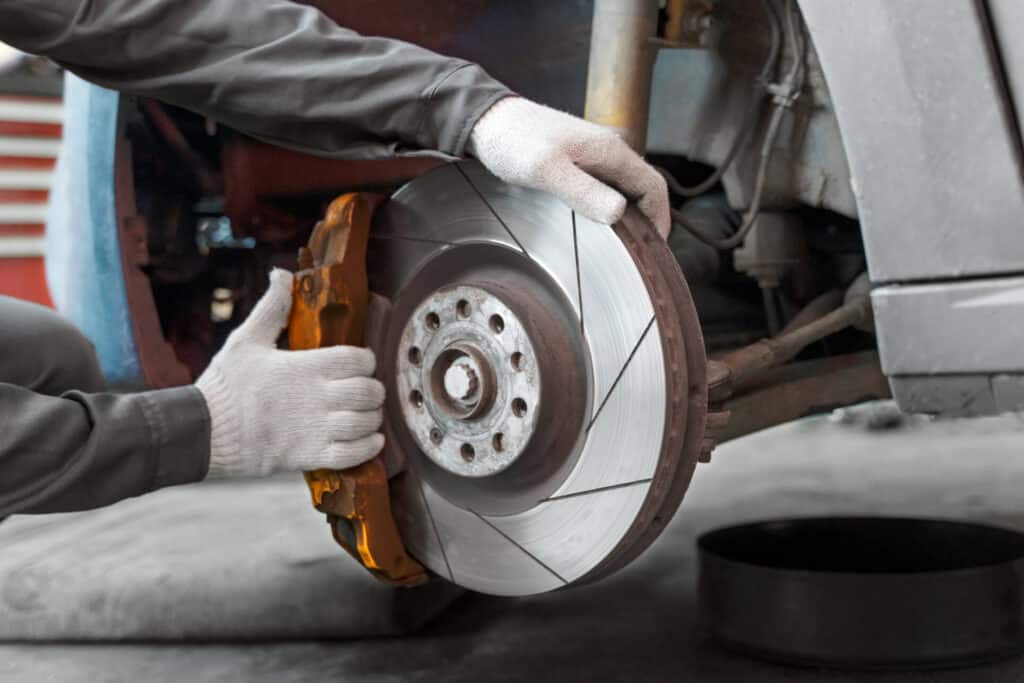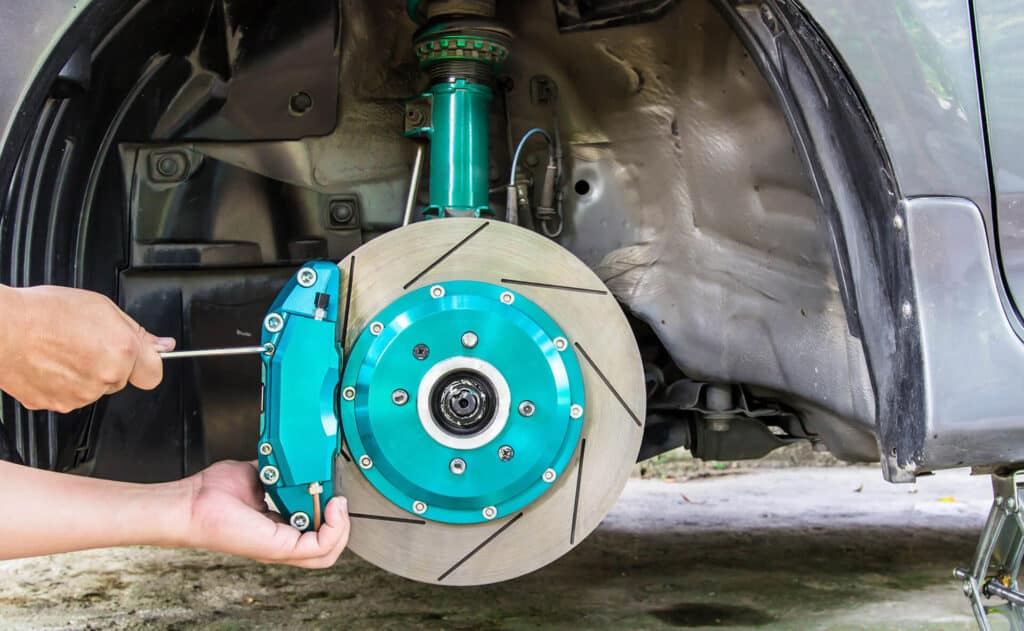Understanding Brake Calipers: A Brief Overview
Brake calipers play an indispensable role in your vehicle’s braking system. They function by housing the brake pads and pistons, which clamp down on the brake rotor to stop your vehicle when you apply the brake pedal. However, like all mechanical parts, brake calipers are susceptible to wear and tear and can sometimes fail, leading to impaired braking performance or complete brake failure.
DIY Brake Caliper Maintenance: What You Can Do at Home
Undertaking DIY maintenance for your brake calipers is a cost-effective and practical way to prolong their life and performance. Here’s what you can do at home:
Visual Inspections: Conduct routine visual inspections of your brake calipers. This involves checking the condition of the caliper, brake pads, and rotors. Look for signs of excessive wear, such as thinning brake pads or grooves in the rotors. Regular visual inspections can help you detect potential problems before they escalate into more serious, costly repairs.
Cleaning: Cleaning your brake calipers can prevent the accumulation of debris and rust, which can impact their performance. Use a brush and a suitable cleaning solution to carefully clean the caliper and surrounding area. Remember to wear protective gear, such as gloves and safety glasses, to protect yourself from brake dust and chemical cleaners.

Applying Brake Lubricant: Applying brake lubricant to the moving parts of the brake system can prevent excessive friction, which can lead to wear and tear. Use a high-temperature brake lubricant and apply it sparingly to areas such as the caliper slide pins. Be careful to avoid getting lubricant on the brake pads or rotors, as this can impact your braking performance.
Remember, while these tasks are manageable at home with basic knowledge and a few tools, it’s important to seek professional help if you notice any significant issues during your routine maintenance. Regular home maintenance is not a substitute for professional inspections but can help to keep your brake calipers in good condition and detect potential issues early.
Recognizing the Limits of DIY: When to Seek Professional Help
While some brake caliper maintenance tasks can be performed at home, it’s vital to recognize when a job requires a professional mechanic. If you notice symptoms such as a reduction in braking performance, unusual noises when braking, or an illuminated brake warning light, these could indicate serious issues that require professional attention. Trying to fix these issues yourself without the necessary expertise can risk further damage and potentially endanger your safety.
The Role of a Mobile Mechanic in Brake Caliper Repair
The role of a mobile mechanic in brake caliper repair is multi-faceted and offers numerous advantages. Here are some key points:
Expert Assessment: A mobile mechanic provides professional expertise, making a thorough and accurate assessment of your vehicle’s brake calipers. They can spot less obvious signs of wear and tear and identify problems that might be missed by an untrained eye.
Convenience: Mobile mechanics come to your location, making it incredibly convenient. Whether you’re at home, work, or stranded on the side of the road, they bring their skills and tools to you, eliminating the need for you to arrange transportation to and from a workshop.
Advanced Repairs: While basic maintenance can be handled at home, more advanced repairs like replacing brake calipers, servicing the brake hydraulic system, or diagnosing complex brake problems require the expertise of a professional mechanic. Mobile mechanics can perform these tasks on-site.
Emergency Assistance: If your brake calipers fail while you’re on the road, a mobile mechanic can provide immediate assistance. This can be crucial in preventing further damage to your braking system and ensuring your safety.
Routine Maintenance: Besides repairs, mobile mechanics can also perform routine maintenance on your brake calipers, like cleaning, lubrication, and inspection. This can be very helpful if you’re not comfortable performing these tasks yourself.

DIY Maintenance vs. Hiring a Mobile Mechanic
Performing DIY maintenance on your car, specifically on parts like the brake calipers, can indeed help to save money on routine servicing costs. By carrying out regular checks and minor upkeep, you can spot issues before they develop into more serious problems. However, there’s a fine line to tread. While the cost savings can be significant, it’s also important to be aware of the potential pitfalls of DIY maintenance. Incorrect installations or repairs can cause further damage to your vehicle, often leading to even more expensive repairs down the line. There’s also the risk of endangering yourself and others if a critical repair is not done correctly.
Conversely, the upfront cost of hiring a professional, such as a mobile mechanic, can seem like a major expense. However, the value of professional expertise cannot be overstated. These professionals have years of training and experience in car repairs and maintenance. They have a keen eye for detail and can spot problems that an amateur might miss. More importantly, they have the right tools and knowledge to address these issues effectively and safely. Paying for their service not only provides the assurance that the job will be done correctly but also potentially saves you from more costly repairs in the future. Therefore, when you’re dealing with more complex tasks or encountering severe issues with your brake calipers, investing in a mobile mechanic’s expertise might be the wisest choice.
Conclusion
Balancing DIY maintenance and professional repairs is key to keeping your brake calipers – and your entire vehicle – running smoothly. By understanding the limitations of DIY, you can make informed decisions about when to call a mobile mechanic. While it might seem like an extra expense, their professional expertise could save you significant time, money, and stress in the long run, not to mention ensuring the safety of you and your passengers.
